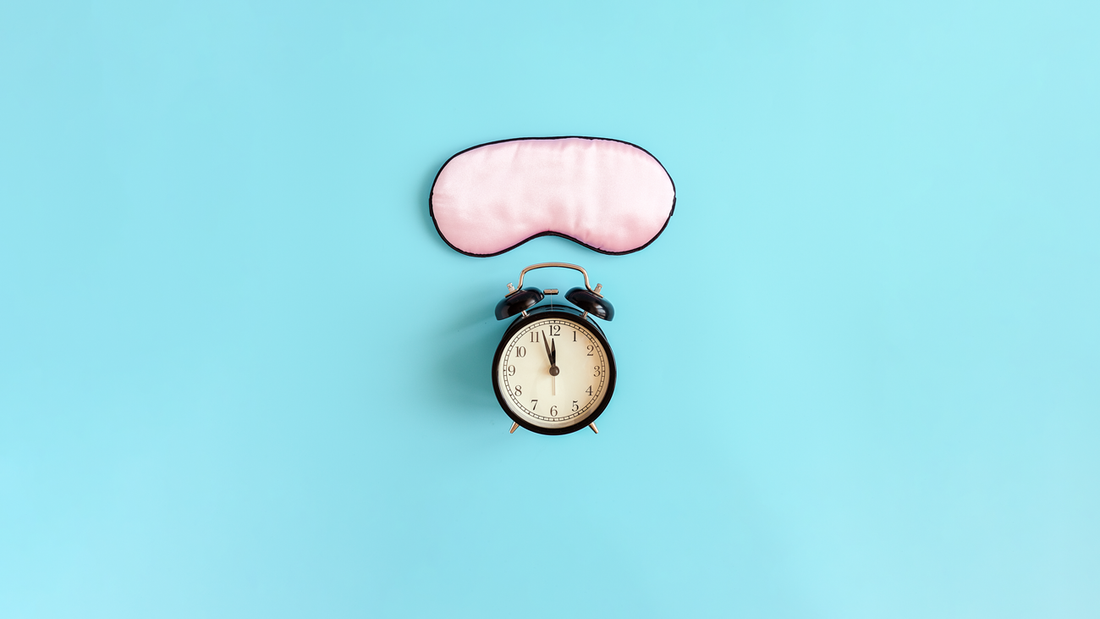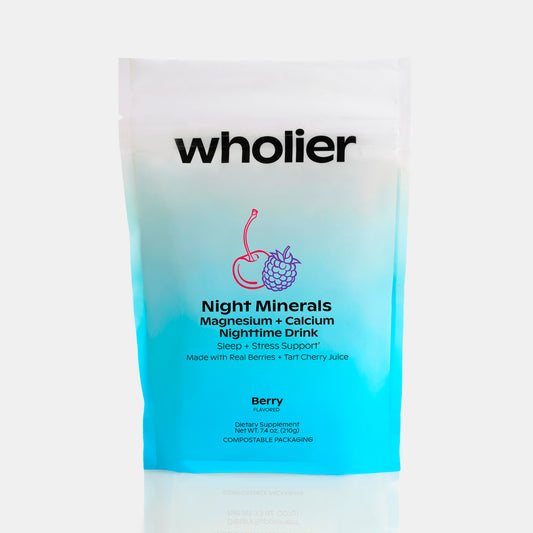
Is Melatonin Bad for You? Understanding Melatonin’s Safety
Melatonin, a hormone produced naturally in the body, plays a significant role in our sleep-wake cycle. Your pineal gland, a pea-sized structure in the brain, increases the production of melatonin as darkness falls, signaling to your body it's time to sleep. Conversely, as the day breaks and light increases, melatonin production decreases, indicating it's time to wake up(1).
Synthetic Melatonin in Sleep Aids
Given its essential role in sleep regulation, melatonin has found its way into various over-the-counter sleep aids. These supplements contain a synthetic version of the hormone, created in labs to mimic its natural counterpart. Synthetic melatonin aims to help those grappling with sleep disturbances like insomnia or jet lag to reestablish a more regular sleep pattern(2).
Side Effects of Melatonin: The Good and the Not-So-Good
While melatonin can be beneficial for those struggling with sleep, it does come with potential side effects. The most common ones include grogginess, headaches, dizziness, and nausea. Some individuals have reported feeling a sense of "hangover" the next day, with difficulties waking up or concentrating(3).
More serious side effects, although rare, can include short-lasting feelings of depression, mild anxiety, mild tremor, abdominal cramps, irritability, reduced alertness, confusion, disorientation, and abnormally low blood pressure(4). Although these side effects are generally mild and often subside as your body adapts to the supplement, it's crucial to consult a healthcare provider if they persist or cause concern.
Is Melatonin Bad for You?
When evaluating the question, "Is melatonin bad for you?" it's essential to turn to scientific research. The consensus is that short-term use of melatonin is generally safe for most adults, with several studies demonstrating its effectiveness in managing temporary sleep disturbances, jet lag, and sleep issues related to shift work(5).
However, the long-term effects of melatonin are less clear. Some research suggests potential issues such as dependency or reduction in natural melatonin production over time. A study published in PLOS Medicine raised concerns about long-term use of melatonin supplements suppressing the body's own melatonin production(6).
Are There Alternatives to Melatonin?
Absolutely! There are several alternatives to melatonin that you might consider:
- Magnesium Glycinate: Magnesium combined with the amino acid glycine can potentially enhance sleep quality and decrease insomnia(7).
- Valerian Root: Used traditionally as a sleep aid, valerian root can improve sleep quality and reduce the time it takes to fall asleep(8).
- Chamomile: Whether consumed as a tea or taken as a supplement, chamomile is known for its calming effects, aiding relaxation and promoting sleep(9).
- Lavender: With its calming scent, lavender has been studied for its potential to improve sleep quality, particularly in those suffering from insomnia or anxiety(10).
Each of these alternatives has its own potential benefits and side effects. Their effectiveness can vary from person to person, and it's important to consult with a healthcare provider before starting any new supplement regimen.
The Verdict
Overall, melatonin supplements can be a useful tool in managing sleep disturbances, particularly in the short term. However, the long-term effects need further research. Before starting a melatonin regimen, it's recommended to consult with a healthcare provider, who can provide personalized advice based on your health situation(11).
Sources:
(1) National Sleep Foundation. "Melatonin and Sleep." National Sleep Foundation, 2021. https://www.sleepfoundation.org/melatonin.
(2) National Center for Complementary and Integrative Health. "Melatonin: What You Need To Know." NCCIH, 2021. https://www.nccih.nih.gov/health/melatonin-what-you-need-to-know.
(3) Andersen, Lars Peter Holst et al. "The Safety of Melatonin in Humans." Clinical Drug Investigation 36, no.3 (2016): 169–175. https://doi.org/10.1007/s40261-015-0368-5.
(4) Zhdanova, Irina V. "Melatonin as a hypnotic: Pro." Sleep Medicine Reviews 9, no. 1 (2005): 51–65. https://doi.org/10.1016/j.smrv.2004.06.004.
(5) Auld, Fiona et al. "Evidence for the efficacy of melatonin in the treatment of primary adult sleep disorders." Sleep Medicine Reviews 34 (2017): 10-22. https://doi.org/10.1016/j.smrv.2016.06.005.
(6) Srinivasan, Venkataramanujan et al. "Melatonin in mood disorders." World Journal of Biological Psychiatry 7, no. 3 (2006): 138–151. https://doi.org/10.1080/15622970600571822.
(7) Abbasi, Behnood et al. "The effect of magnesium supplementation on primary insomnia in elderly: A double-blind placebo-controlled clinical trial." Journal of Research in Medical Sciences 17, no. 12 (2012): 1161–1169.
(8) Bent, Stephen et al. "Valerian for sleep: a systematic review and meta-analysis." American Journal of Medicine 119, no. 12 (2006): 1005-1012. https://doi.org/10.1016/j.amjmed.2006.02.026.
(9) Amsterdam, Jay D. et al. "Chamomile (Matricaria recutita) may provide antidepressant activity in anxious, depressed humans: an exploratory study." Alternative Therapies in Health and Medicine 18, no. 5 (2012): 44-49.
(10) Koulivand, Peir Hossein, Maryam Khaleghi Ghadiri, and Ali Gorji. "Lavender and the nervous system." Evidence-Based Complementary and Alternative Medicine (2013): 681304. https://doi.org/10.1155/2013/681304.
(11) Auger, R. Robert et al. "Clinical practice guideline for the treatment of intrinsic circadian rhythm sleep-wake disorders: Advanced sleep-wake phase disorder (ASWPD), delayed sleep-wake phase disorder (DSWPD), non-24-hour sleep-wake rhythm disorder (N24SWD), and irregular sleep-wake rhythm disorder (ISWRD). An update for 2015." Journal of Clinical Sleep Medicine 11, no. 10 (2015): 1199-1236. https://doi.org/10.5664/jcsm.5100.





